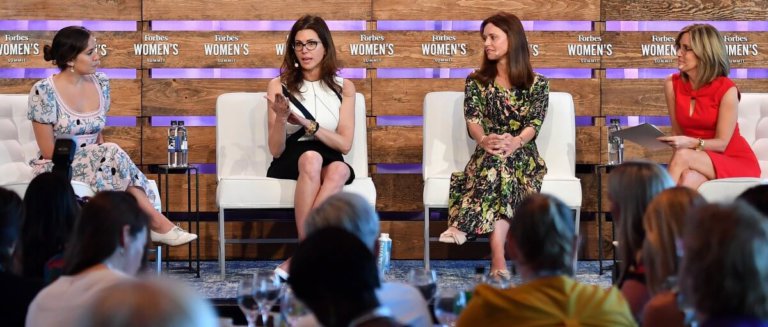
As applications to global business schools slump, gender equity in MBA 2019 programmes, ie. the most prestigious of educational badges in the corporate world today, is making significant gains.
The percentage of women who have enrolled in full-time MBA programmes in US and non-US schools is now an average of 39 percent and 36 percent respectively in fall 2019, according to recent data by Forté Foundation, a nonprofit focused on women’s advancement and gender equity in business schools.
Among Forté member schools, nineteen currently have women enrollment at upwards of 40 percent – a notable jump from just 13 percent five years ago and zero percent in 2005. These schools include including Harvard Business School, the Wharton School at the University of Pennsylvania and the Sloan School of Management at the Massachusetts Institute of Technology.
Washington University in St Louis Olin Business School came closest to an equal split between the genders with 49 percent women enrollment this year. Overall, 38.5 percent of enrollment in Forté member schools’ MBA programmes are by women, increasing from 36.2 percent five years ago.
Good news! Even with decline in enrollment, more women than ever are pursuing their MBA. Many schools seeing women make up 40% or more of the classroom, increasing gender equity. @BWMBAA https://t.co/EahZeUIybq
— Women for BW (@womenforbw) November 7, 2019
Elissa Sangster, CEO of Forté said: “Every year we see women’s enrollment inch up at business schools.
“The progress over five-year intervals, in particular, demonstrates a significant shift in gender parity at top business schools. At this pace, we’re confident we’ll reach our goal of 40 percent women’s enrolment by 2020.”
This means in classrooms that are already hitting the 40 percent mark, the hard-fought for parity is plain to see at long last. The significance of this is amplified still when we consider how women are outnumbering men at all levels of education but are still underrepresented in one study area: business programmes.
“You’re walking into the classroom, you’re looking around, you’re not thinking you’re the only one and you’re hearing the conversations be more balanced — all the things that you want to happen in a place that’s 50/50 are by and large going to happen when it’s 40/60,” Sangster explained.
Speaking to Poets&Quants, Sangster said: “If you step back from the data a little bit and you look at the progress that’s been made in such a short time period, it is remarkable.
“One or two percent isn’t a lot every year to be reporting on, and often I’m told, ‘Well, that’s not a great story, it’s one percent.’ I say ‘Yes, but look at the trend and look at how quickly this is happening and it is a significant change when we look at that growth. It is definitely moving in the right direction and there’s lots of things that have contributed to that. I continue to be pleased every year when we’re able to report growth.”
More women in MBA programmes also mean women are inching closer to narrowing the pay gap, something that has eluded women workers for decades. In the US, women earned 80.5 percent (US $41,977 annually) of what men earned (US$52,146) per year on average.
Did you know gender balance in the classroom improves business education for all? Our new research shows good news, we’re on track to reach 40% women enrollment by 2020 amongst our member schools. Learn more in this new write up from @financialtimes https://t.co/bFqlBhqffF
— Elissa Sangster (@ElissaSangster) November 7, 2019
MBA holders typically earn more than the overall population, roughly US$87,000 per year on average, according to PayScale estimates. (However, PayScale also noted that the largest pay gaps are among highly-educated women, whereby women MBA holders earn 74 cents for every dollar earned by their male peers.)
An MBA can “open up a lot of opportunities for women,” said Sangster, who hopes this enrollment trend would lead to the development of women to enter the C-suite, which remains stubbornly male-dominated. “It can boost your salary, which I think can give you an economic advantage and economic mobility. It can give you the ability to transition careers and more easily move across industries.
“We need more women in leadership. We need more women in the business world, and we think that that’s ultimately good for business. Return on investment, return on equity, those things are better when gender balance is strong at the top of a company.”







